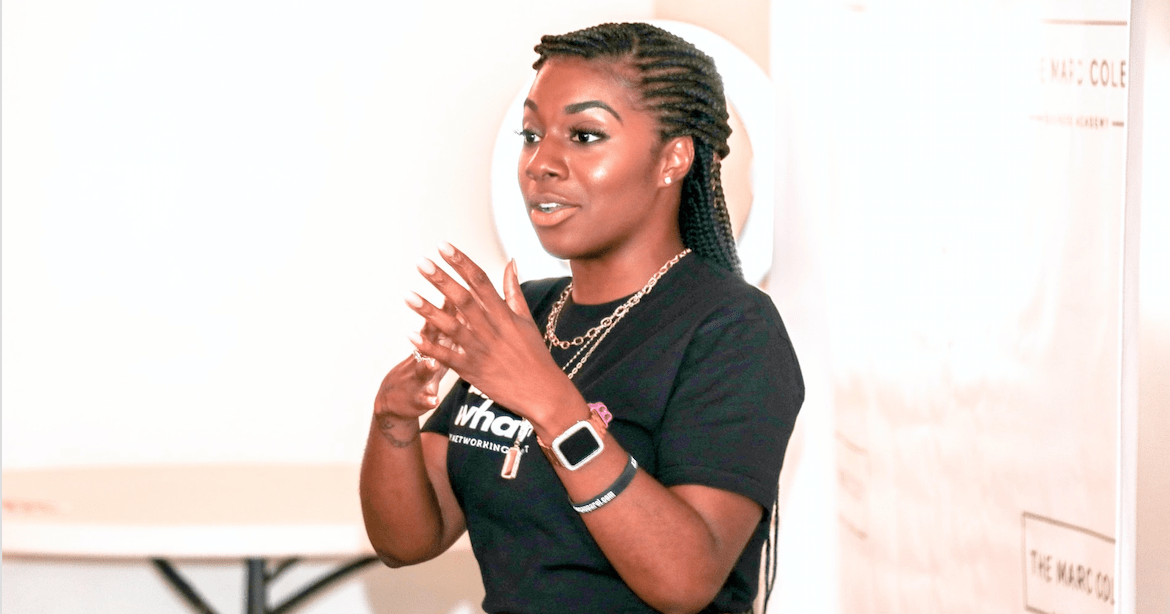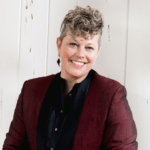
Beyond Box-Checking: Why Speaker Diversity Matters
Great speakers share candidly about their personal experiences and discuss their particular area of expertise, a new framework they’ve developed, or a new way of looking at, and engaging in, the world. Many times, this can create an environment that welcomes all audience members—and can create a sense of oneness.
Yet, for those charged with sourcing seasoned, truly diverse speakers to present on a variety of progressive topics, where to start?
Niche collectives and ‘anti-bureaus’ have just started popping up in the last year or two, such as Consciousness Leaders, and they are helping diverse speakers get booked by organizations of all sizes, both nationally in the U.S. and across the globe.
Here’s what you need to know about hiring diverse speakers for your next conference, summit, leadership meeting, or DEI programming initiative.
Diverse Speakers Are Top Priority
The lack of representation and inclusion of diverse speakers deprives events of valuable perspectives, experiences, and insights. HR leaders and event planners need to ensure that all voices are heard and that every participant feels welcome irrespective of their identity or status.
When most HR leaders and event planners hear the phrase event diversity, they usually think of demographics that check a familiar box—gender, ethnicity, race, or sexuality. But there’s more to choosing an ideal speaker.
When you think about diversity, equity, and inclusion, don’t limit yourself to a singularly defining characteristic. Consider the entire breadth of diversity when seeking a keynote speaker or workshop facilitator, including women, Black, Indigenous and People of Color (BIPOC), LGBTQIA+ (including experts who identify as nonbinary and gender non-confirming), those within the disabilities community, those who identify as neurodiverse, military veterans, older adults, to name a few.
Crucially, ensuring diversity and inclusion in your events isn’t just confined to expressing anti-discrimination statements. It also involves putting specific policies in place, as much as it involves simply doing the right thing.
For starters, consider how to incorporate a truly inclusive experience in every step of your event planning.
Beyond Box-Checking in Diversity of Speakers
Diversity refers to recognizing every person is unique and has physical, psychological, and social differences that set them apart from everyone else. This includes, but is not limited to:
- Age
- Race
- Ethnicity
- Language
- Gender identity
- Sexual orientation
- Socioeconomic status
- Religion
- Neurodiversity
- Physical ability (mobility, visual, hearing, etc.)
- Trauma survivors
- Military veteran status
- Marital status
Aside from the differences mentioned above, diversity may include a range of ideas, values, and perspectives.
How Do Equity and Inclusion Factor Into Events?
Equity recognizes that specific groups of people have traditionally lacked the opportunities and access that have benefited others. It aims to ensure fair treatment, equal opportunity, and access for everyone while attempting to spot and remove the obstacles that have prevented some people from fully participating.
Equity promotes fairness and impartiality within the distribution of resources by institutions or systems. To tackle equity, you must clearly understand the leading causes of outcome disparities in an organization.
An inclusive workplace event is respectful, collaborative, and supportive, and aims to get everyone to participate and contribute. It endeavors to remove all discrimination, intolerance, and barriers.
When lining up speakers for your upcoming event, consider different learning styles, physical abilities and inclusivity of language in what is being presented. This will help ensure that your event is equitably delivering its content.
Why Event Diversity Matters
Event diversity matters because it helps build a fair society that enables everyone to be represented and ensures that everyone has access to equal opportunities. Diversity, equity, and inclusion bring together people, ideas, and perspectives to help create more substantial organizations and stronger teams.
The moral case for event diversity is that we all have something of value to add. As such, the society is responsible for addressing historical factors and obstacles that have affected underrepresented groups.
Economically, hiring diverse speakers means that organizations that prioritize diversity are stronger and operate more effectively. Without diversity of thought and perspectives, ideation and innovation pales in comparison to companies that embrace diversity—in the boardroom and on stage.
And without a culture of equity and inclusion, workers who feel they are not valued will quit, taking their highly-valued talents with them.
Here are some additional benefits of hiring diverse speakers.
1. Creates a More Rewarding Experience
Deploying DEI elements as core to your events promotes an integrated experience for the speakers, audience, and content alike. When you bring together diverse backgrounds, audiences, and mindsets, it creates a more expansive journey. This eventually leads to a thriving community that’s increasingly more collaborative and productive.
2. Enhances Your Event’s Curb Appeal
About 80% of workers in a recent CNBC survey want to work in an environment that prioritizes DEI. If individuals want to work for DEI-driven organizations, they will also want to attend DEI-driven events.
So, by hiring diverse speakers, you’ll increase the likelihood and number of diverse groups of people attending your event. This not only helps you achieve your event-specific goals, but also extends the vision of your organization.
3. It’s What People Want
Recent data reveal that 70% of consumers believe it’s crucial for brands to publicly take a stand on political and social issues. According to this survey, 60% of consumers also believe that brands have the ability to reach the masses and create real change.
Remember, people have high expectations for your event content and speakers. So, it’s vital to put your mission, values, and vision on display.
Program Inclusive Event Content
Aside from hiring diverse speakers, you’ll want to ensure that the content being presented suits a diverse group as well. So, when devising your event programming, focus on progressive topics that directly engage and deeply resonate with the audience.
For instance, if the theme of your event is on leadership in the advertising industry, consider including different challenges that Black creatives or women face in attaining leadership positions. Don’t be afraid of diving into seemingly uncomfortable conversations. Stakeholders want authenticity and cultural relevance above all else.
Book the Most Diverse Keynote Speakers
It’s vital to get a clear understanding of the efforts that make your events more inclusive, as well as the elements you may have overlooked.
If you’d like to book truly diverse speakers who touch on consciousness topics that both include and go beyond DEI and leadership development—such as mental health in the workplace, trauma-informed leadership, somatic emotional release, vulnerability, empathetic leadership, sustainability, purpose and more—search the Consciousness Leaders collective.
About the author
Kelly Campbell is the founder of Consciousness Leaders and Trauma-Informed Conscious Leadership Coach to self-aware visionaries. She writes for Entrepreneur and has written for Forbes. They are the author of "Heal to Lead" (Wiley, 2024), a new book on transforming past trauma in order to uncover our innate leadership power.

